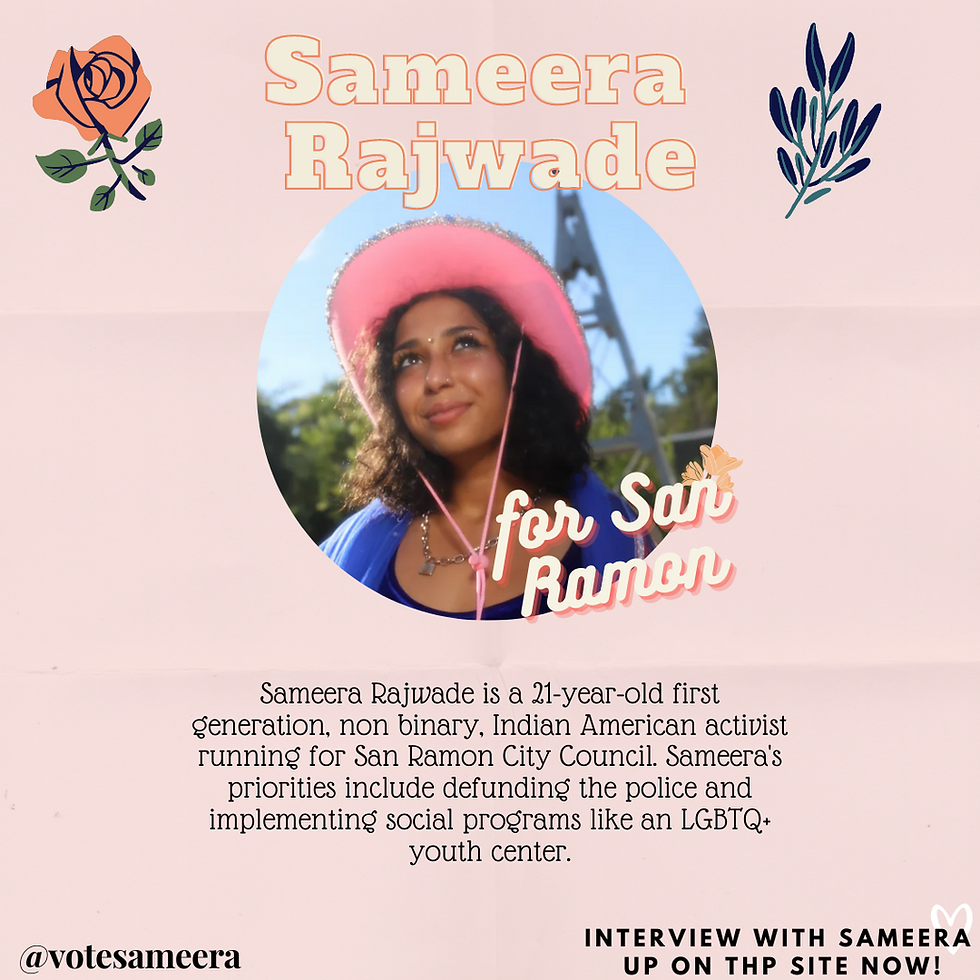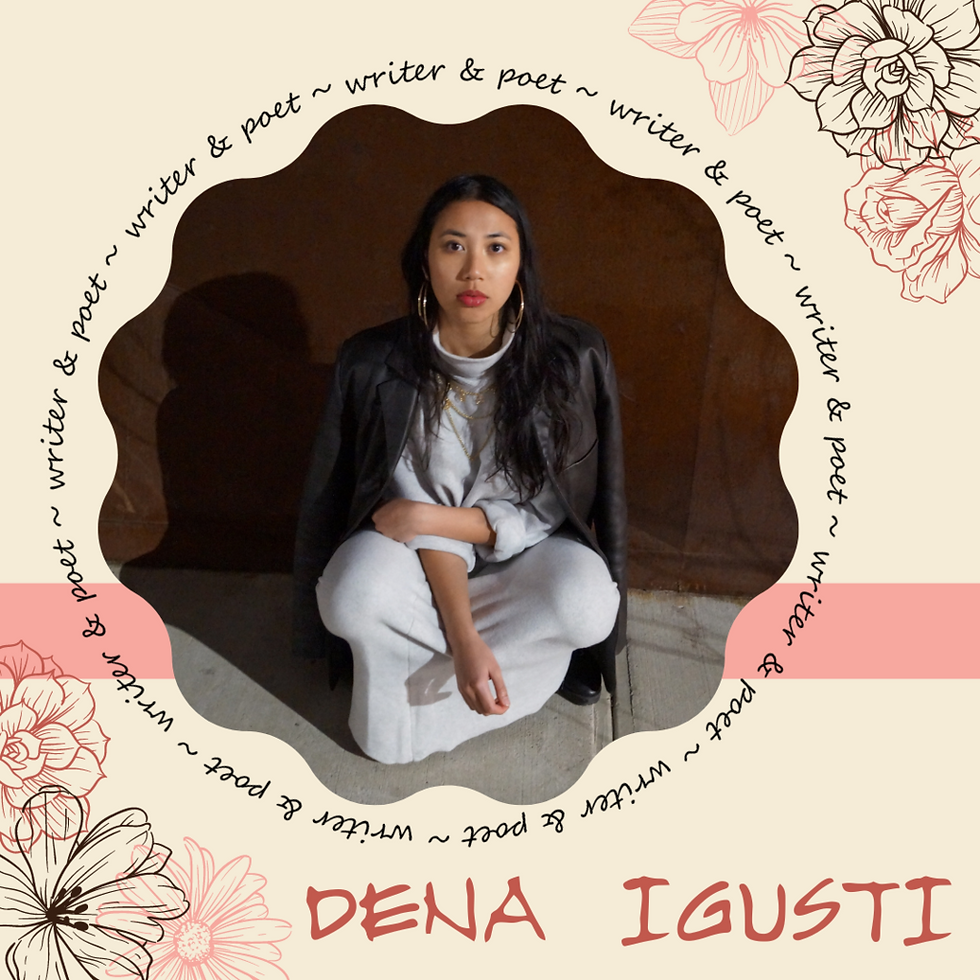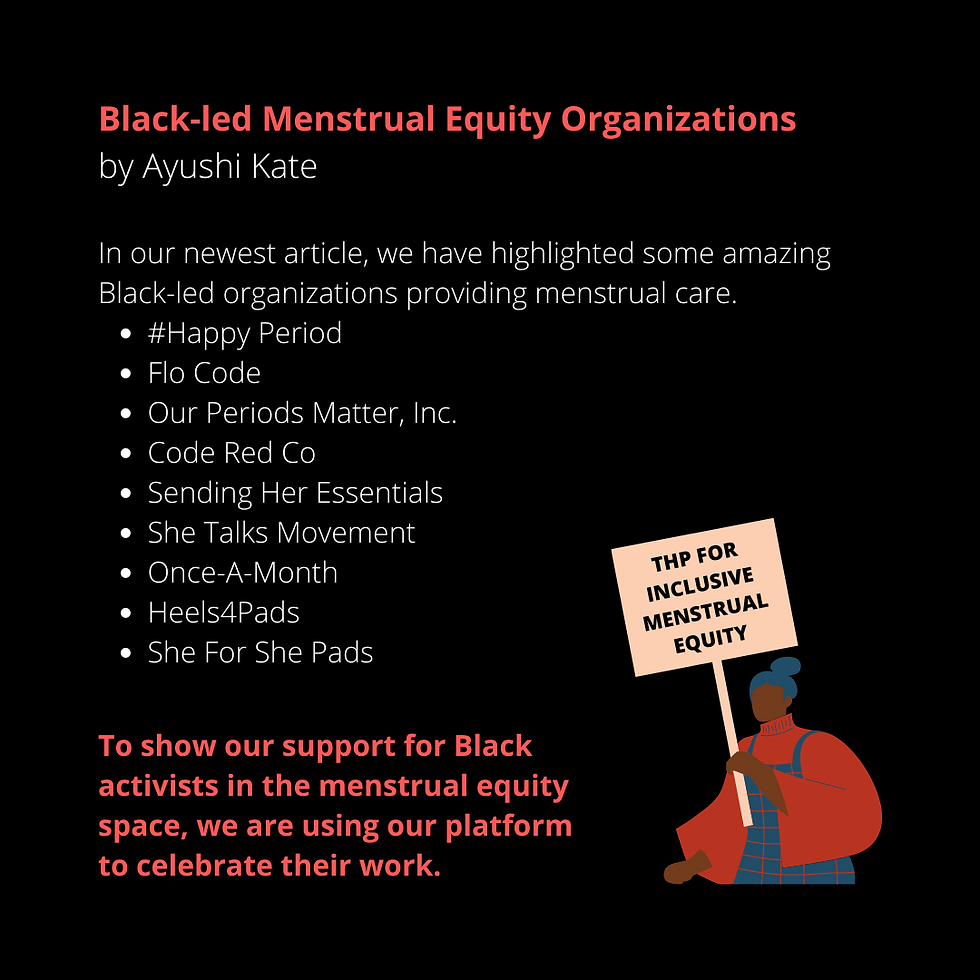Interview: An Activist Dancer in Her Own Words
- Sep 18, 2018
- 5 min read
The Homegirl Project chatted with activist dancer Shannon Hafez about self-love, challenging gender roles through dance, and her life-changing experience dancing for Solange Knowles.

When did you first become passionate about dance?
I remember at age 13 being really inspired by a dance company called Soul Escape, which consisted of dancers I still look up to to this day. I remember seeing dance in a way I had not seen before and wanting to make others feel that way. I was extremely passionate about dance, but my belief that everything was a competition disabled me from fully and unconditionally loving it. Once I started to gain confidence in myself and my abilities, I was allowed to love dance, which is something that was very hard for me before.
Can you tell us about your journey as a young dancer?
I spent most of my childhood trying to fit a mold, whether that was prima ballerina, Instagram model, or LA commercial hip hop dancer. It is so easy for kids to become lost in the dance world and this scary generation of social media gratification. After some wandering I luckily found my home at Serendipity Dance Company with a strong community of girls and women! My teachers were a lot more than teachers. They were also my therapist, my second mom, my personal driver, my inspirations. We attended a dance convention called Adrenaline Dance, where I met some of the most important and significant people in my life. This company played a major part in not only my dance journey but my journey as a human.
What inspired you to pursue dance through college?
As senior year rolled around I still didn't quite know the route I wanted to go. I never was a "school" person and the pressures of going to college can be quite exhausting. I luckily found Calarts, a very non traditional art college, which was the only school I resonated with. The very open community has allowed me bloom into my truest self. I see dance and what dance can be in a completely new light. Gender roles and heteronormativity are REAL in the dance industry and I feel blessed to have found a safe space to discover myself beyond those roles.
Despite your young age, you boast an impressive resume, which includes dancing for none other than Solange Knowles. What was this like?
This experience has really been helping me navigate my place in the dance community. I was the youngest one in the shoot, but I felt at home. I never really felt at home in the commercial dance world before. I found discomfort in trying to fit the "image" that I thought would get me booked; I've encountered many young dancers who still think every interaction is a competition. But the dancers at Solange's shoot were so mature and content with themselves as artist and people.

What is your perspective on how dance and activism can intersect?
It's comforting to know there are insanely inspiring artists that support other artists, it's comforting to see commercial dance and concert dance collide, and it's comforting to see such a strong representation of queer people and POC in the media. It gives me hope. As of now I'm feeling passionate about getting some queer representation UP IN HERE and bringing activism to my work! I want to create content I wish I would have had growing up, content that defies the norm and doesn't conform to society!
You’ve been very outspoken about gun violence and other issues. Why is that?
When it comes to gun violence people are suffering, living in fear, and literally dying. Growing up it was the norm to have at least one lock-down a year due to gun threats, and they continue in college. We live in a culture of violence, and at this point, so many of us are desensitized to these actions and events. Violence creates more violence, violence cannot create peace. I'm "outspoken" about gun violence because innocent people should not be dying! I'm "outspoken" about sexual violence because people should not be harassed, assaulted, etc. I'm "outspoken" because these are urgent subjects that need to be discussed. I don't think I'm special for being vocal about these matters, I just care about human beings.

How does your identity as a WOC impact your feminism?
Being a WOC is an identity that I definitely didn't embrace growing up. Being Egyptian is not the norm, and I tried to hide this part of myself. We all did in my family; it was an identity that we felt shame for. We feel shame for so many of our identities. We judge and therefore divide ourselves from one another. There are many identities and layers that exist within a WOC and there are many intersections of racism and sexism. My experiences and hearing about others experiences of alienation motivate me to be the best feminist I can be. No one should have to feel shame for their identity. My experiences can only help me begin to understand. I will never be able to fully know or grasp what other WOC have experienced, but I can listen, use my voice when appropriate, support, and make an effort to have the feminist movement be as inclusive as possible, regardless of skin color or gender assigned at birth. There is room for all of us in the feminist movement!
What advice would you give young activists of color? Young dancers?
S: Embrace your individuality. Be unapologetically you. Being different is a good thing, and there are people in the world that love you for you. Don't feel controlled by the norm and society. You can literally do anything you want. You don't have to be who you think other people want you to be. Being yourself will inspire others to be themselves as well.
Who inspires you in life?
People that give me hope for humanity. I'm inspired by people with kind and open hearts. People who genuinely care and ask how you're actually doing. People who say something when they know something isn't right. People who use their privilege to help others. People who are just SO themselves. It inspires me to see people love and embrace who they are. I am heavily influenced by activists who pave the way for social justice like Ai Weiwei, Ellen, and Obama. I also draw a lot of inspiration from young queer activists like Amandla Stenberg, Emma Gonzalez, ALOK, Chella Man, and King Princess. Seeing people my age literally changing the world and inspiring others reminds me that I can do that too. Just because I'm an 18 year old girl doesn't mean my words don't matter!
The key theme of The Homegirl Project is "female empowerment." How does this issue impact your own life?
Females/femmes are what have gotten me through the roughest parts of my life. They keep me sane. We have endured unacceptable treatment that only we can truly understand. The world sees us as weak, as prey, as crazy. They tell us we are incapable, that it was "our fault," and that we aren't valid. I want every female/femme to know that they have SO MUCH to offer. We are important and valid. We can do whatever the F**K we want. We are not yours/for you, eye candy, or objects. We can look, dress, present ourselves however we want. We don't owe you anything. It is so important for femmes to support, include, and listen to each other. Femmes continue to help me grow and make me stronger every day!
What is one issue that you want to change about the world?
We need to reconnect with our humanity. Most of the problems we face today are human problems, because inequalities are man made. We can't build a culture on alienation. We live in a culture of violence yet responding with violence is the most toxic thing we could do. I want other people to view other people as human beings who have the same right to exist peacefully and to be loved. I think a lot of problems would be solved if we were more in touch with our humanity.










Comments